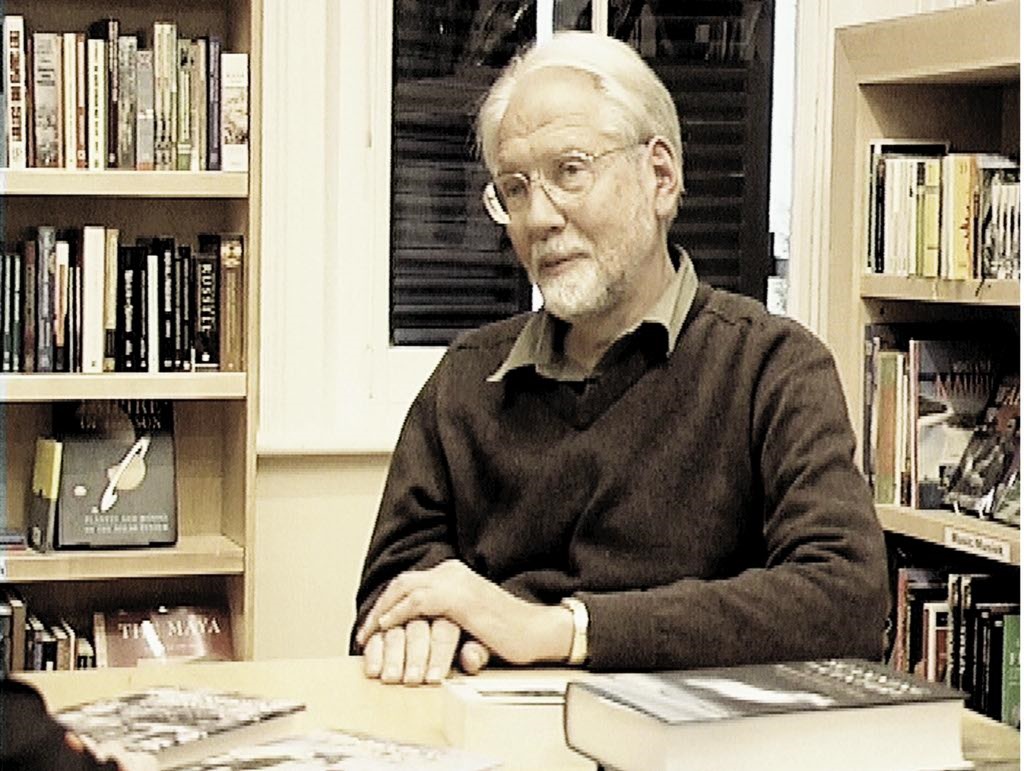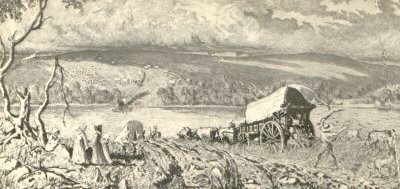They are in the background, always in the background. They say nothing, even when we ask after their health, or the weather. Shy men or women of indeterminate age, hanging back, wearing unassuming clothing, always muted colors, or black.Their faces are emotionless, their stance often a little stooped, their reactions impossible to know. They could be thirty, they could be sixty. When they are fifty, they look to be seventy (or thirty-five). The way they walk, the way they stand, the way they sit --- always set so they will fade with the woodwork. They want no attention, and if it comes, they turn nervous, or turn away, pretending to be busy with the coffee, retreating before our curiosity and our interest. The quiet, the forgettable.
Schoeman has chosen just such a fade-into-the-woodwork aunt to be the central character of this whole novel. And how, you might ask, could she possibly make such a book interesting? My answer: beats the hell out of me, but here is one that is --- at least for one of us --- un-put-down-able.
I got caught up in Sussie being born and growing up and living and growing old and getting ready to die, so much so that I stayed up well beyond the hour of my beauty sleep when anyone in their right mind would be floating off, but here I am staying up all hours, stewing about shy, unassuming Sussie. All the while I am thinking that maybe in this book I will at last get a clue to why our timid, ever self-effacing maiden aunts or cousins or nieces become such recluses. Here, I think, I'll learn how they came into their anonymity without going mad; perhaps find out exactly why anyone, man or woman, would chose to remain near but just out of sight (in plain sight) for all their lives.
What made my old Aunt Beulah tick? Why would she --- unlike her many brothers and sisters --- choose such self-effacement? Was she ever young, passionate, tempted to do something mad and scandalous --- steal a check, steal a kiss, steal up the back stairs with someone else? What goes into the making of the very very shy? How come she stuck with it and her next older sister, scandalous Aunt Rosie (known in those days as a "straw widow") didn't?
And, more to the point, how can a writer lead us through the whole life of one such and make it a can't-put-down, don't bother me while I am reading this one, shut up and leave me alone? Make me a recluse too.
§ § § Sussie grows up more than a century ago, in the outback of South Africa. The Boers were stolid, and industrious; stoic, aggressive. Especially when it came to land. Sussie's mother and father like the other Afrikaners pushed out the black and the coloureds and finally the poor whites. The Boers knew the law (hell, they wrote the law) so in land disputes they would always win out over the poor.
Sussie's mother is insatiable in the land-grab business; she's not only in the land business, she's in the son business (no time nor interest for her one shy daughter). Her two brothers, serious Jakob, jokey Pieter, will be well taken care of. But it all starts and ends with Sussie. We first meet her dying in bed, at age seventy or eighty. She can barely move, but manages to do just that one last time, moving across the terrain in which she has lived as a shadow for so long, part of that harsh bitter, dry, unyielding South African hill country. Unyielding. Like her.
Older brother Jakob dies one night, mysteriously, out looking for sheep in the snow. His funeral gives her the chance to unearth a new freedom.
That was when I discovered for the first time how much you could see and hear if you remained silent and withdrew, if you watched and listened and did not allow a single word or gesture to escape you; it was then, as I moved unnoticed among the funeral-goers with the coffee, that, without realizing it, I learned how to live the rest of my life.
§ § § This barren land becomes a central character in the book. It is bleak and harsh, going off into infinity, land that seems only good for sheep (or for stealing). It is here that Sussie's family history is played out. "How rich the Roggeveld always was for a few weeks after the end of winter, when the white flowers appeared in the bright light and the cold wind of the tentative spring, the only wealth that meagre land ever knew."
I remember the spekbos radiant-white like a snowfall along the rocky ridges, large patches of yellow katstert, blazing like candles, and the fields of kraaitulpe like fire, the gous-blomme and botterblomme and perdeuintjies, and when the scattered clouds swept past the sun, the entire bright veld creased and furrowed like water, and the people moving across it were like swimmers on the surface of a dam, rolling on the waves of shadow and light.
Many Afrikaner words run through this story. (It was originally written in Africaans). Even in the sudden, short-lived spring in the high country, the language manages to turn lyric. We feel ourselves to be properly here, in this bastard land of South Africa, with its bastard language, and words that seem oddly familiar: veld, kloof, kraal, voorhuis, reebok, stoep. And the blooms with their other-worldly names: geelbos, gousblom, renosterbos, harpuisbos, spekbos, wilde anys. (The publishers kindly offer a brief glossary at the end of the book).
§ § § How did Sussie become what she became? How can she stand it? And why is it all so interesting? She explains her first epiphany at her brother Jakob's funeral. The second --- her discovery of freedom --- comes after her mother's death. "To the people around me [in the village] it seemed as if with Mother's death I had lost my drive and my purpose in life, and in their eyes it was all over: I had been left alone with nothing to look forward to escape my own inevitable old age and death; their views did not touch me however."
So much had already changed or been lost over the years, that this was only one more change and loss in the long sequence; I had survived each change and each loss thus far, however, and I knew I would be able to endure this one too regardless of their expectations.
We have learned, although Sussie would never have stated it boldly, that living with Mother was a zilch anyway. As Mum lay dying in bed, Sussie thought it might be right if for once in her life she gave her daughter a hug and said how good she had been. Fat chance.
One day, shortly after the funeral, there was a snowstorm and Sussie was alone in the house and no one called or came over to find out how she was doing, and "I spend the entire day alone in the house without speaking, or having to speak, to anyone, without duties to take care of or expectations to live up to, the first day of complete freedom I had ever known in my life."
Later, she goes to a wedding with her nephew Maans and his new, rather pushy wife, and Sussie sees herself, "the silent and disregarded guest at the fringe of the merriment [who] hears one of the women say, 'Yes . . . Maans is seldom at home these days. His mad old aunt looks after the farm for him.'"
I do not even recall whose wedding it was or where it took place; I just remember being seated in the shadowy corner and hearing that observation that no one contradicted, and the the sudden silence that fell when they realized I had been sitting there all the time and had overheard their conversation.
"For a moment the yawning abyss returned and I found myself on the opposite side once again, almost indistinguishable in the distance; but then they quickly changed the subject, and where I sat, excluded from their circle, I was overwhelmed by the realization of my own freedom."
§ § § The question again: why is This Life so captivating? Do they just hand out spells to anyone who wants them there in the stoep?
My suspicion is that the only one who knows the answer would be Karel Schoeman. His job is to write it and send out to the world (and with the help of a good translator) give us a mesmerizing book.
When we finally get to the time that Sussie is about to take her leave of the world, as old and as decrepit as she is --- she somehow manages to make a trek (the history of the Boers is built on long, impossible treks) to the place where she had last seen her one beloved brother, Pieter, with his (and her) own beloved Sofie.
For a brief time so long ago, these two had refused to let this girl be background material; for the first time in her life, with them, she was allowed to live. They jollied her up with talk and play and she then watched them floating gently together, down in the stream, Sophie's long black hair spread around her, around him, like a dream.
Sussie, now old and dying, has come back to that sacred place where she can listen to the wind,
"The sorrow and the pain," I remembered from long ago, "O the sorrow and the pain," but I was unable to recall where I had first heard the song or who had sung it, for the voice of the singer had been forgotten, as insubstantial as the wind. There is no plant in the world that can offer a cure, I realized, no shrub that can guarantee oblivion. We are doomed to remember and to bear our burden, right up to the end.
When she slowly, oh so slowly, makes the long trek home, barely surviving the cold and the wind . . . when she arrives, she gets to her room, and falls "into the blackness." The maid discovers her, a neighbor comes to help put her to bed . . . there in the very bed she was born in, the same room she had had when she was young.
There is no daybreak any more, only the dark; first darkness, then sleep. The dark has obliterated the moonlight, the dark has snuffed out the candle-flame; Pieter falls wordlessly from the window-sill, back into the darkness whence he had come, and only Sofie's black dress still glistens for a moment as she dances alone to the rhythm of the soundless music until she too disappears, a shadow in the shadows. They have found peace, and now this life can end too, the report delivered, the account given and the balance determined. The water had dried up and the soil did not retain the footprint. The darkness obscures it all.

